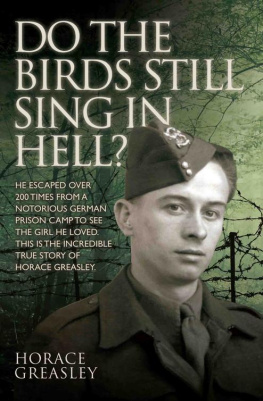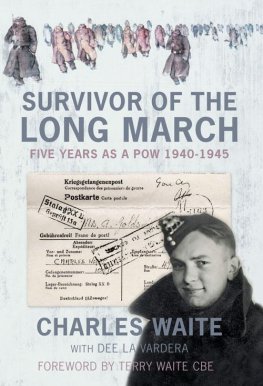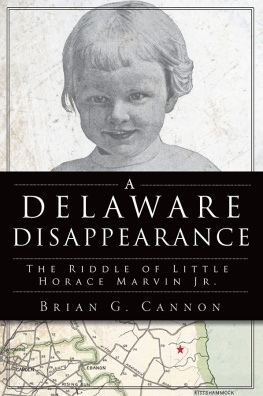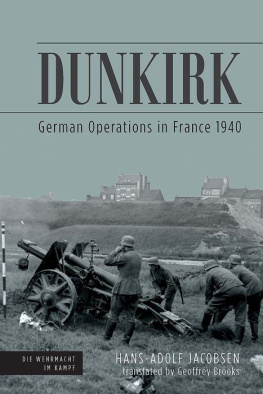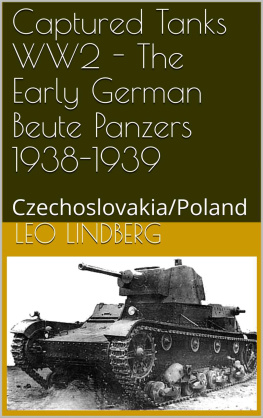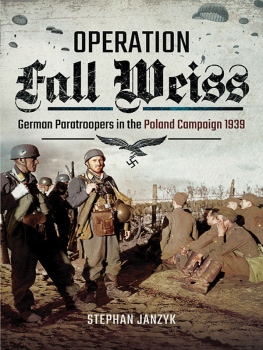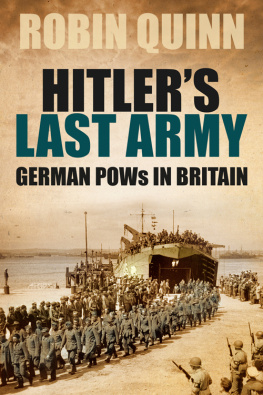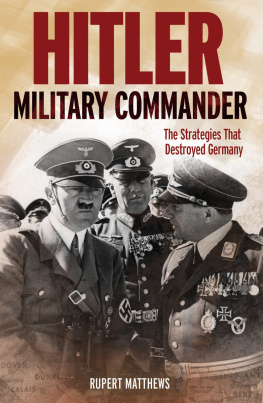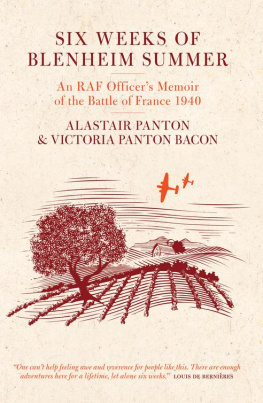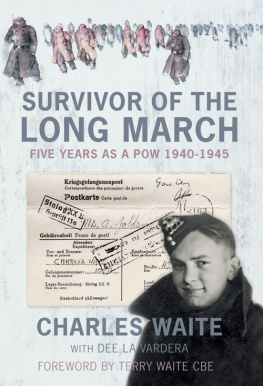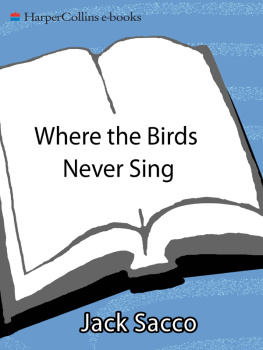F or all the lads who never made it, and especially for Jock for his culinary skills with the little bit extra I was able to provide for the pot. And for Rose for making my life as a prisoner that little bit more bearable. But especially for my wife Brenda who urged me on to get this book written. For the unconditional care and attention she has given me throughout our marriage and especially in the last eight years when my health has failed me. Without her I wouldnt be here now to tell this tale.
Brenda, this book is for you.
Thanks to Ken Scott, without whom this book would never have been written, and to his wife Hayley, daughter Emily and son Callum. I thank them for taking such a keen interest; they have now become some of our closest friends.
BY THE AUTHOR KEN SCOTT
I n the spring of 2008 I reluctantly agreed to meet up with an elderly gentleman. He was 89 years old. I was desperately trying to finish off my third book and had another two projects on the go, when I was notified that an ex-POW wanted to write his Second World War memoirs. Oh no, I said to my wife, not another war story.
It was a man called Filly Bullock who introduced the two of us in a small town called Alfaz del Pi on Spains Costa Blanca, the White Coast, on an unusually hot March day. Filly had warned me I was about to stumble on the greatest World War Two story never told and that I would fall over myself to write it.
I secretly bet my bottom dollar that I wouldnt. This old boy just doesnt know how busy I am, I thought to myself, and anyway hes 89. Why the hell did he wait until now to think about getting his book written?
I sat in Horace Greasleys well-kept lounge while his wife Brenda ferried in the coffee. Id talk to him for ten minutes Id decided, let him down gently. Anyway what was I doing here? Im a fiction writer. Sure Id dabbled with the memoirs of a not so famous, not so exciting MP but the book had never made it to print. Id had no experience whatsoever ghostwriting this type of book. I knew nothing about it, wouldnt even know where to start.
I sat with Horace for over two hours as he relayed his condensed story to me, first through numerous cups of coffee and then through the beers (Horace preferred gin). I sat with an open mouth as this old soldier took me through the dramatics of his unfortunate capture, the horrors of a death march and a train journey where Allied prisoners fell dead every few hours. The story was only just beginning.
I listened while Horace Jim Greasley spoke.
Horace relayed his near-death experience in the first camp and then took me through his first meeting with Rosa, in Camp Two. There was an instant mutual attraction between the young German interpreter and the emaciated prisoner. Within a few weeks he would be having sex with her on a filthy bench top in the camps drilling workshops, under the noses of the German guards. It wasnt love at first sight; that took the best part of a year. In fact at the exact point he discovered how much he felt about Rosa and how much he actually loved her, the Germans transferred him to yet another camp. He was devastated.
It was at this point that Horace told me that the good bit was only just beginning. He would relay his time in the third camp at Freiwaldau, in Polish Silesia, in dulcet whispered tones for nearly an hour.
I sat in silence. The book was formulating in my head as I desperately fought the urge to take my pen out and begin scribbling right there and then. I had questions. Why wait nearly 70 years before writing the book? Why me? Hows his health? A book can take a year to write is he going to hold out?
I never asked the questions as I didnt want to hear any answers I might not like. I agreed to give it a go. For five months I sat with Horace while he relayed the greatest escape story ever. I thought back to my youth, the great Colditz stories and Steve McQueen in The Great Escape. Horace Greasleys account of his time in the POW camps blows those stories out of the water.
What makes it all the more amazing is that every bit of the book is true. I attempted to exaggerate at times with a little poetic licence. Horace wouldnt allow it; in reality I didnt need to. The words in this book are not those of Ken Scott, ghostwriter, they are the words of Horace Greasley, ex prisoner of war. Horace could not write or type because of severe arthritis. I take no credit for this book; I have merely acted as his fingers.
Horaces long-term memory and attention to detail was remarkable. At times reliving the brutality at the hands of his German captors would bring him to tears. I followed suit closely; it is one of my weaknesses. For me, tears are infectious.
I would like to think that telling his story brought a certain closure for Horace on the horrors he experienced during the war. He expressed on more than one occasion that this book is for his prisoner comrades the men who suffered at the hands of their fellow man.
The experience of writing this book has made my life richer; meeting a man like Horace and hearing of his suffering has humbled me. I doubt whether my generation could have coped with the experiences these men went through. I relayed some of the stories to my children Callum, 9, and Emily, 12. They were fascinated, and listened at times in disbelief as I described the prisoners suffering and the callous, barbaric acts committed by mankind. I think it is important that we never forget the suffering an ordinary individual goes through during war and remember that Horace was one of the lucky ones. He came home.
We must continue to teach our children about the futility and horrors of war. The politicians that instigate them must question their conscience. They never suffer; only the young men and women of their country and the countries they fight with.
My children met Horace. We socialised with him and his wife Brenda. I count myself fortunate to have met such a man as Horace Greasley and take it as a great honour that he approached me to write his book.
I only hope that I have done it justice.
Ken Scott
May 2013
This book is based on a true story, on information gathered from eyewitness accounts and over one hundred hours of interviews. It is a story about misery, genocide and enslavement it is a story of one mans daring in the face of adversity.
I t was early February 1945; the war was all but over. The Red Army had already liberated Auschwitz and other death camps and the shocking stories of what they had found there were relayed to an astonished world. At Belsen, the news reports sickened civilised people as images of dead and half-starved men, women and children were beamed around the world. Even the civilian German nation could not, or perhaps would not, believe what they were seeing and hearing. At Belsen the British liberators found over 30,000 inmates dead or dying. The skeletal figures who had survived the death camps gazed into the cameras with hardly the energy to stand or comprehend that they had been freed and their physical suffering was over. A few inmates talked of the unbelievable conditions they had been kept in, of the torture and brutality at the hands of their captors, and one man hung his head in shame as he explained that some of his fellow countryman had turned to cannibalism simply to be able to see the next day.
The camera crew focused on a sickening pile of dead, naked, emaciated women that had been located at the far end of the camp. Naked young girls, women, mothers and grandmothers no one had been spared. The pile of decaying rotting flesh was 80 yards long, ten yards wide and four to five feet deep on average. The images were shown on cinema screens around the world. When the Supreme Commander of the Allied Forces, General Dwight Eisenhower, found the victims of the Nazi camps, he ordered all possible photographs to be taken, and for the German people from surrounding villages to be ushered through the camps and even made to bury the dead. He said. Get it all on record now get the films get the witnesses because somewhere down the track of history some bastard will get up and say that this never happened. His words were prophetic.

